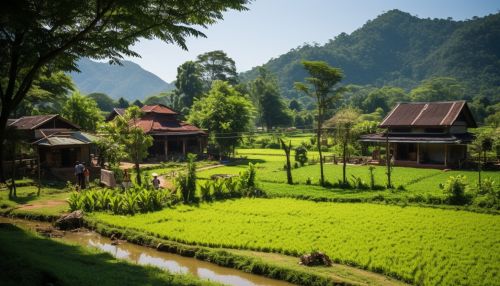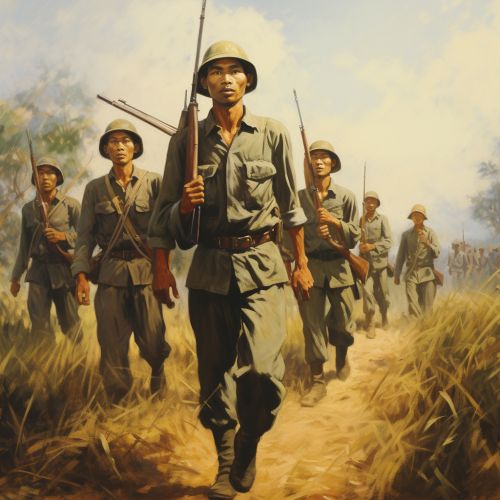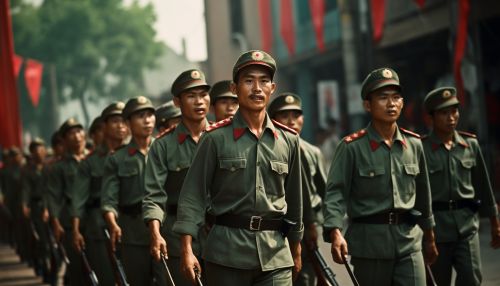Vo Nguyen Giap
Early Life
Vo Nguyen Giap was born on 25 August 1910 in the village of An Xa, Quang Binh, in what was then the French protectorate of Annam. He was the third of four children born to Vo Quang Nghiem and Nguyen Thi Kien. His father was a literate peasant who earned a living by reading and writing letters for his fellow villagers. His mother, on the other hand, was a weaver who also sold homemade alcohol to supplement the family's income.


Education and Early Activism
Giap received his early education at the village school, where he excelled in his studies. At the age of 14, he was accepted into the prestigious Quoc Hoc High School in Hue, where he was exposed to French literature and Western philosophy. It was during this time that Giap developed a strong sense of nationalism and began participating in anti-colonial activities. He was expelled from the school in 1926 for leading a student protest against French rule.
Political Involvement
After his expulsion, Giap moved to Hanoi, where he joined the Tan Viet Revolutionary Party, an underground group advocating for Vietnamese independence. He also began studying law at the University of Indochina, where he became friends with future North Vietnamese leader Ho Chi Minh. In 1931, Giap was arrested by French authorities for his political activities and spent two years in prison.
Military Career
Upon his release, Giap fled to China, where he received military training from the Kuomintang. He returned to Vietnam in 1944 and helped establish the Viet Minh, a nationalist movement dedicated to ending French colonial rule. Giap was appointed as the commander-in-chief of the Viet Minh's armed forces, marking the beginning of his illustrious military career.


The First Indochina War
In December 1946, the First Indochina War broke out between the Viet Minh and the French. Giap, despite having no formal military training, proved to be a brilliant strategist. He implemented guerrilla warfare tactics, which were highly effective against the French forces. The war culminated in the Battle of Dien Bien Phu in 1954, which resulted in a decisive victory for the Viet Minh and marked the end of French colonial rule in Indochina.
The Vietnam War
Following the division of Vietnam into North and South in 1954, Giap became the Defence Minister of North Vietnam. He played a crucial role in the Vietnam War, leading the North Vietnamese forces against the US-backed South Vietnamese government. Giap's strategies, including the use of the Ho Chi Minh trail to supply troops and the launch of the Tet Offensive in 1968, were instrumental in the eventual victory of North Vietnam.


Later Life and Death
After the reunification of Vietnam in 1975, Giap served as the Deputy Prime Minister until his retirement in 1991. He remained a respected figure in Vietnamese society and continued to speak out on various issues, including environmental conservation and economic reform. Giap passed away on 4 October 2013 at the age of 102.
Legacy
Giap is widely regarded as one of the greatest military strategists of the 20th century. His tactics and strategies have been studied in military academies around the world. Despite his military achievements, Giap was also known for his humility and dedication to the cause of Vietnamese independence. His life and work continue to inspire generations of Vietnamese and people around the world.
